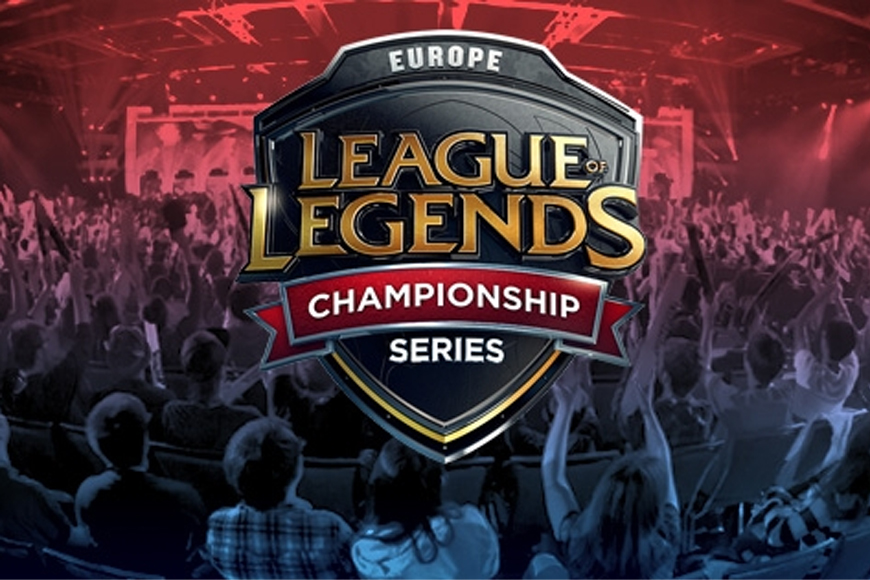UPDATE (April 2018): Riot announced that a new EU Masters tournament will take place, the first of which was won by Origen in Leicester’s Haymarket Theatre.
ORIGINAL ARTICLE:
A rumour has emerged suggesting Riot Games is thinking about adopting a ‘Champions League-style’ model for the EU LCS.
The idea ‘is gaining support, according to sources familiar with the matter,’ reports Dot Esports.
If it’s carried out, the European Challenger Series would be scrapped in favour of a system that places more value on the national leagues, such as the ESL UK & Ireland Premiership, German Meisterschaft and Spanish Superliga.
Currently, the winners of six national leagues (and four open qualifier teams) reach the Challenger Series Qualifiers. From there, they can qualify for the Challenger Series proper, and from that they can enter the LCS.
Under the new rumoured system, the winners of the national leagues would qualify straight into the LCS.
And, if true, the top orgs from each area would compete in the national leagues. For example, Fnatic in the UK, G2 in Spain, Millenium in France etc.
The Dot Esports article rightfully points out that this would disrupt the current leagues and create a skew in quality, for example Fnatic coming up against the likes of Barrage, NerdRage and xL.
But the opportunity is there to create more buzz around national leagues, and increase the number of viewers, sponsorships and revenues.
“One consideration that is gaining support is a Champions League-like model, according to sources familiar with the matter.”
It’s not the first time that this has been mentioned. A while back, Riot made a change that meant sister teams would no longer be eligible to compete in or advance to the Challenger Series. Instead, they can compete in European Regional Leagues. This sparked us to write this speculative article about Fnatic’s B-team being allowed to play in the ESL UK&Ireland Premiership.
It’s worth reminding that there are definitely changes coming to the EU LCS. Riot recently announced a franchise model for the NA LCS. Here, any money created by the league will be shared with all participating orgs, and likewise teams will be required to share ‘a portion’ of their league-driven revenues as well as sponsorship and merch sales.
Several EU teams have already applied to join the NA LCS, such as Fnatic, G2, Splyce and Misfits, according to ESPN.
Riot said it won’t shift the EU LCS to a franchise model.
It said back in June: “Europe is a large and uniquely diverse region that spans multiple countries, cultures and ecosystems. While this can be challenging, it is also a great opportunity. We are excited to further explore ways to deepen and strengthen our competitive ecosystem to benefit the many talented players, organisations and fans from all over Europe.
“We’ll be back later on this year with more information around our plans for Europe.”
Earlier this year, Riot opened a new office in London. It recently told Esports News UK: “We are still working through plans for next year, but we absolutely won’t be able to continue running local leagues without the help of partners like LVP, ESL UK etc.
“We haven’t announced what we’re doing [in the UK and Ireland in terms of esports] next year, but we’ll still be working with partners.”
There are currently national leagues in Germany, Spain, France, Poland, UK/Ireland and the Nordics.
Explore Our Trusted Gaming Resources
Discover essential guides to UK casino sites, betting platforms, and crypto casinos — updated for this year.
- Best Online Casinos UK
- Top Crypto Casinos
- Top Online Betting Sites 2025
- No Verification Casino Sites in the UK
- Top Casinos Not on Gamstop

Dom is an award-winning writer and finalist of the Esports Journalist of the Year 2023 award. He has almost two decades of experience in journalism, and left Esports News UK in June 2025.
As a long-time gamer having first picked up the NES controller in the late ’80s, he has written for a range of publications including GamesTM, Nintendo Official Magazine, industry publication MCV and others. He also previously worked as head of content for the British Esports Federation.


